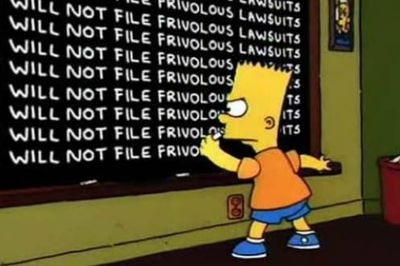Two individuals this past week filed suit against Governor Bill Haslam regarding the new counseling discrimination law. They claim the law violates both the Tennessee Constitution and the U.S. Constitution. While any well-reasoned citizen can see the value in having a court strike it down, this lawsuit ain’t gonna do it.
Some background: the bill was proposed in light of a change that the American Counseling Association made to its code of ethics that prevented discrimination by counselors. That organization’s code of ethics is one that the Tennessee state licensing board for professional counselors had long since adopted outright. By default, then, counselors in Tennessee were bound to the new changes.
A smattering of interested counselors brought the issue to legislators and earlier this legislative session a bill was drafted that would understandably fall under the umbrella of ‘religious freedom.’ A relatively new strand of legislation, religious freedom laws — most of which have been drafted in recent times due to the advances of LGBT equality across America — are those that seek to “protect” religious folks from, basically, acknowledging the legitimacy of LGBT lives and relationships.
The original bill, therefore, sought to protect the counselor due to his or her “sincerely held religious belief.” The state House amended that phrase to read “sincerely held principles,” a diluted phrase that ultimately served two purposes. One: it accommodated passage of the bill and, later, Governor Haslam’s deferential signature. Two: it rendered the intention of the bill’s sponsors (and many supporters) completely moot.
Yes, counselors can now discriminate against clients due to their politically-invested religious beliefs—under the guise of a sincerely held principle, of course—but it is something that, functionally, they’ve always been free to do. The law requires counselors to refer clients to someone else and, while there may not be many alternatives in the small towns of Tennessee, the client is sometimes better off with no counselor than a bad counselor who’ll work with you in fear that he'll be sued otherwise.
Had lawmakers kept the original language, we’d all been screwed. The passage, however arduous, of ANY law that acknowledges religious exemption regarding LGBT lives would make it even easier for legislators to pass similar and harsher laws in the future. Lawmakers would find themselves empowered to engage every one of our lives every day with hate (a word the Tennessee Equality Project and American Counseling Association used to reference the counseling discrimination law).
In fact, there remains confusion between the now-completely-unrecognizable intention of the bill’s sponsors and the law now in place, as was evidenced when national media outlets such as NPR, The Atlantic, and The New Civil Rights Movement published erroneously that the law still contains reference to “sincerely held religious beliefs.”
Enter Bleu Copas and Caleb Laieski.
The two are suing Governor Haslam over this law, with the claim that it targets LGBT people. They claim the law violates both the Tennessee and U.S. Constitutions.
Copas is a veteran, an Arabic linguist who was discharged under “Don’t Ask Don’t Tell” and who fought for the repeal of that law. He’s a Tennessee native, and resident of Anderson County where the lawsuit was filed. Laieski is from Virginia and according to ThinkProgress is just 21 years old, and you may recall he met with President Obama a number of years ago regarding gay bullying.
Their argument rests on two assumptions, neither of which is supported by the law in question. First, they state that gay people—as a class of people—are entitled to equal treatment under the law. It is the same argument, utilizing the 14th Amendment, that ultimately granted marriage equality nationwide. That Supreme Court ruling regarded explicit bans against same-sex marriage. The counseling discrimination law, even in its earliest form, didn’t directly engage LGBT people in the same way.
Next, they argue that under the new law “LGBT individuals are treated differently.” Here’s a big problem: the law itself doesn’t identify gay people, LGBT people, anywhere. The language of the law doesn’t say anything about LGBT people. The plaintiffs use as evidence the discussions that took place while the bill wound its way through the House and Senate. They seem to want to sue the mindset of the law’s sponsors and supporters, because there is no evidence in the law to support it.
In fact, the American Counseling Association spokesman Art Terrazas was clear to point out, upon the announcement that Haslam had signed the bill, that the law has “unintended consequences that will reach Tennesseans in all walks of life.” He provided items such as a veteran suffering from PTSD, and a woman suffering from spousal abuse as examples of how every Tennessean is affected by this law, that it no longer concerns only LGBT people.
In its diluted form, in the language that was passed, the new counseling discrimination law, in a way, doesn’t discriminate. A counselor could have “sincerely held principles” regarding people who wear multicolored socks, or mismatched socks, or socks with sandals. She is now required to refer the sock-wearer to another, hopefully more accommodating, counselor.
And yes, a counselor can have “sincerely held principles” regarding LGBT people. Similarly, he must refer the client to someone else.
The law in its current form doesn’t target or even identify LGBT people, though that was the original intention. When it was changed so that it doesn’t discriminate against anyone, then really nobody, no class of people, is in a position to claim they’ve been targeted or treated differently from the rest of the population.
Read the filing:
Lawsuit filed regarding the TN counseling discrimination law
[scribd https://www.scribd.com/embeds/315384000/content?start_page=1&view_mode=scroll&show_recommendations=true expand=1]
